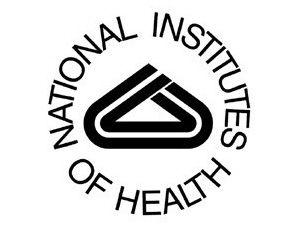 |
 |
 |
 News from Around the Americas | July 2007 News from Around the Americas | July 2007  
As US Meth Production Falls, Mexican Suppliers Meet Demand
 Bill Poovey - Associated Press Bill Poovey - Associated Press
go to original


| | Crystal methamphetamine use among young American adults is twice higher than previously estimated, according to National Institutes of Health (NIH) research published Friday. (NIH) |
Chattanooga, Tenn. - Thanks to tougher U.S. laws, fewer people are cooking up batches of meth in dangerous homemade labs, but that doesn't mean the supply has dried up. Eighty percent or more of America's methamphetamine habit now comes from Mexico, law enforcement officials say.

That means U.S. drug agents are changing how they fight this particular drug war - looking to stop Mexican traffickers on interstate highways instead of raiding small-time meth labs in kitchens and backyard sheds.

"These people are not involved to satisfy their own drug habits," said U.S. Attorney Russ Dedrick of Knoxville. "They are involved for money."

State and federal laws that restrict purchases of the decongestant pseudoephedrine - a key ingredient in making the addictive stimulant - have sharply reduced rural, clandestine labs.

Records provided by the federal Drug Enforcement Administration show there were 7,347 meth lab reports nationwide last year, down from 12,619 in 2005 and 17,834 the year before.

But those labs have been replaced by superlabs in Mexico and by Mexican-run labs in some American border states, DEA spokesman Rusty Payne said. They are supplied with bulk shipments of pseudoephedrine and ephedrine originating mostly in China, India and Germany, he said.

"The issue now is international chemical control," Payne said. "When these chemicals are diverted onto the illegal market, that is a global issue."

Payne said the "growth of international drug trafficking organizations, specifically meth production, has created a huge amount of supply in the United States. They have sort of outdone the small toxic labs."

Gregg Sullivan, an assistant U.S. attorney in Chattanooga, said people who made meth in East Tennessee's clandestine labs "created a strong user base."

"Now Mexican organizations have come in and filled that need," he said. "They are bringing in the product in very creative ways using the interstates in vehicles and trucks."

But U.S. officials say Mexico is taking its own steps to halt the illegal flow of meth.

Mexico has limited the sale of pills containing pseudoephedrine to licensed pharmacies and it required the medicine to be stocked behind the counter. It has prohibited customers from buying more than three boxes of pills with pseudoephedrine and mandated prescriptions for larger doses.

In March, agents in Mexico City seized $206 million in a methamphetamine case that DEA chief Karen Tandy then described as the largest drug cash seizure ever.

Tandy said U.S drug agents working with Mexican police discovered the money - profits of methamphetamine sold in the United States - stuffed inside walls, suitcases and closets in one of Mexico City's wealthiest neighborhoods.

Mexican agents also seized eight luxury vehicles, seven weapons and a pill-making machine during the raid in Lomas de Chapultepec, a neighborhood of walled compounds that is home to ambassadors and business magnates. Seven people were arrested.

In addition to the U.S. money, officials found 200,000 euros and 157,500 pesos, which totals about $280,000.

Mexican Attorney General Eduardo Medina Mora said the money was linked to a major pseudoephedrine trafficking network run by a native of China who had gained Mexican citizenship.

In Tennessee, which once led the nation in clandestine drug labs, tougher new laws restricting the sale of pseudoephedrine have reduced the number of clandestine labs from 1,327 in 2004 to just 336 last year, a state report shows.

Tommy Farmer, Tennessee's meth task force director, questioned whether the latest number was accurate and argued that domestic production of meth "is nowhere near an acceptable level." The hazards of exposure to toxic chemicals and fumes from the drug manufacture are still there, he said.

Dedrick said law enforcement agents are now more focused on intercepting interstate traffickers. "They will be seen more and more," he said. "We will see increased numbers in cases involving foreign nationals."

Payne said the DEA has offices in more than 50 countries, but "we can't just go into another country and arrest somebody."

"There is no way we are going to solve problems of international chemical trafficking without global cooperation," he said. | 
 | |
 |



